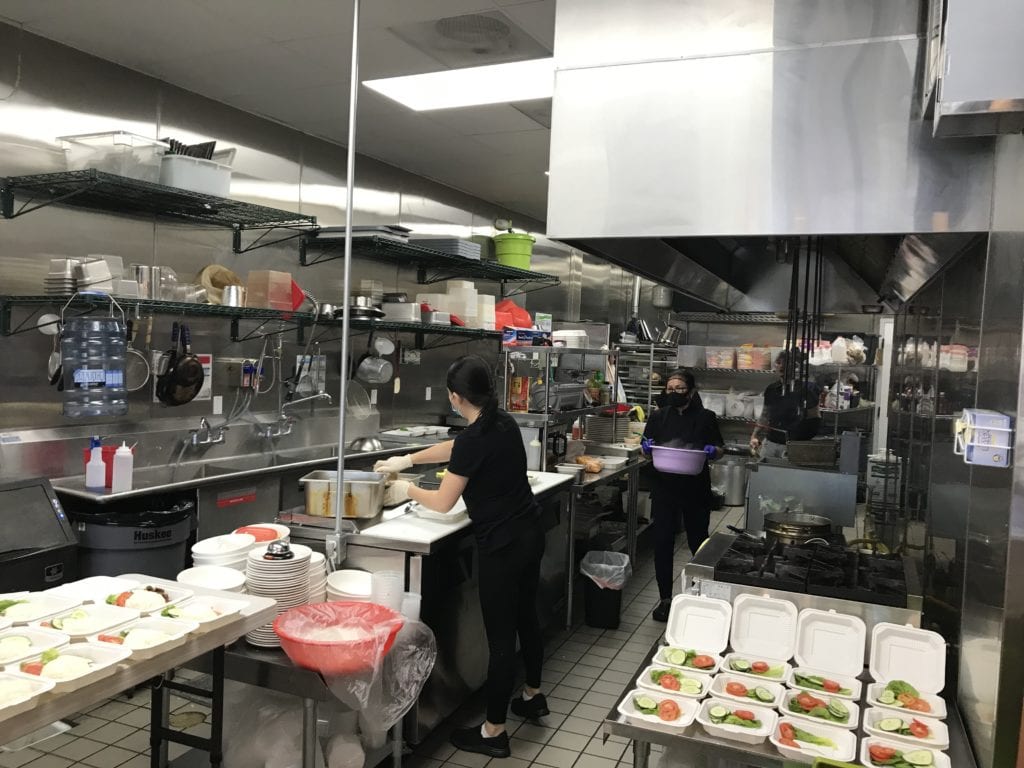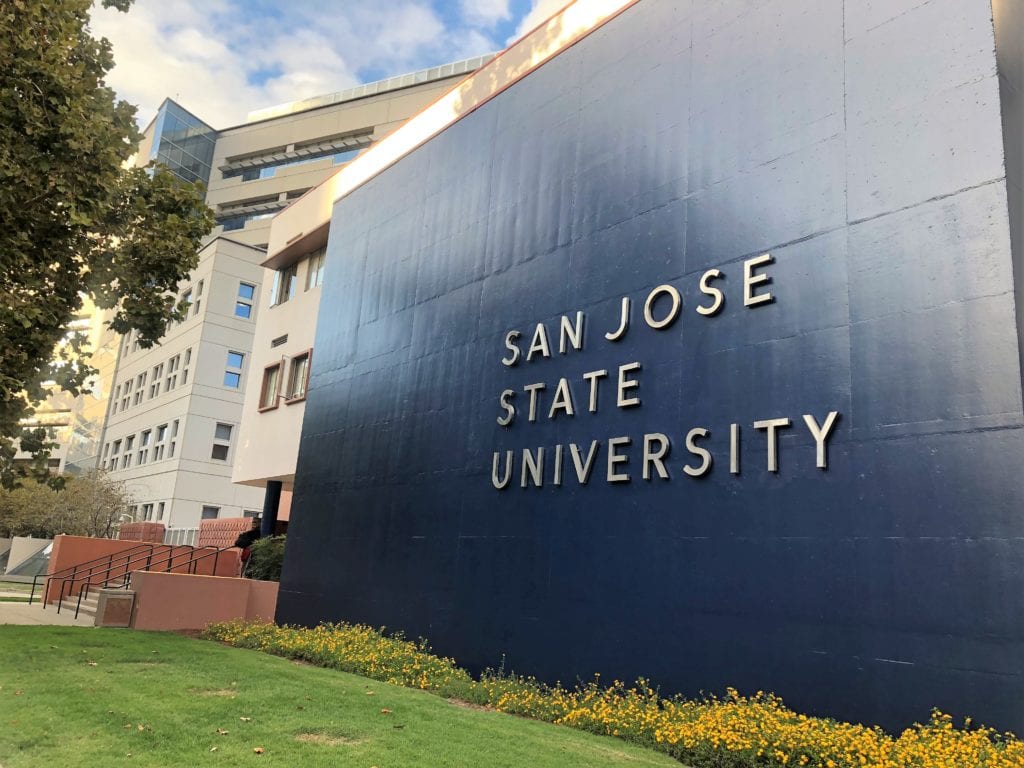In 2020, California was blindsided by the coronavirus pandemic, unprecedented calls for racial equality and devastating wildfires. The year’s turbulence led to many new laws.
Business-related laws include an increase in minimum wage, extended family leave and additional COVID-19 regulations. Others focus on equity, criminal justice and police reform.
Of the hundreds of new laws signed by Gov. Gavin Newsom, here are 10 that will have a significant impact on Santa Clara County residents.
1. Reporting COVID-19 outbreaks: Assemblywoman Eloise Reyes, D-San Bernardino, introduced AB 685 to stem the spread of COVID-19 in the workplace. Under the law, which went into effect Jan. 1, and lasts until Jan. 1, 2023, employers are required to notify workers of potential COVID-19 exposure as well as report outbreaks (of three or more cases) to the public health department.
The new law strengthens Cal/OSHA’s ability to enforce COVID-19-related workplace safety violations, including shutting down worksites that aren’t adhering. As of Jan. 4, at Kaiser Permanente in San Jose, 44 emergency staff members tested positive for COVID-19 and one employee died.
2. Workers’ compensation for COVID-19: During the coronavirus pandemic, essential workers have been under continual risk of exposure to COVID-19. This has been especially true in East San Jose. Some residents feel compelled to continue working while having the coronavirus to provide for their families, causing further spread.
As of Jan. 11, there have been 84,726 cases and 944 COVID-19 related deaths in Santa Clara County.
Introduced by Sen. Jerry Hill, D-San Mateo, SB 1159 provides workers’ compensation for employees whose illness or death resulted from contracting COVID-19. The statute will remain in effect through January 1, 2023.

3. Minimum wage increase: Increasing the minimum wage by a $1 this year has proven controversial as businesses struggle to survive the pandemic.
Businesses with 26 or more employees must increase their hourly wages to $14 per hour. Small businesses with 25 or less employees must pay $13 per hour. San Jose increased its minimum wage from $15.25 to $15.45 an hour.
Sen. Mark Leno, D-San Francisco, introduced SB 3, which Gov. Jerry Brown signed into law in 2016. The law requires an annual minimum wage increase through 2022, culminating in a minimum wage of $15 an hour.
Gov. Gavin Newsom decided against suspending the increase this year.
“Not allowing this increase to go forward will only make life harder for those Californians who have already borne a disproportionate share of the economic hardship caused by this pandemic,” Newsom said in a statement.
4. Expanded paid family leave: SB 1383, which went into effect on Jan. 1, expands coverage of the California Family Rights Act, providing paid family leave for employees who miss work after contracting COVID-19 or caring for an affected family member.
Introduced by Sen. Hannah-Beth Jackson, D-Santa Barbara, the law grants employees (at businesses employing five workers or more) job protection previously reserved for employees of large companies. Jackson said she authored this bill to aid the many workers who don’t take leave for fear of losing their jobs.
5. Mental health parity law covers additional conditions: With the isolation and stress of sheltering in place during the coronavirus pandemic, the support of mental health services is especially needed.
Previously, fully insured health care plans only covered nine specified mental health disorders. Under SB 855, introduced by Sen. Scott Wiener, D-San Francisco, as of Jan. 1, health plans are required to cover all recognized mental health and substance abuse disorders. The new law makes behavioral health care more affordable, so people don’t have to wait until they are in crisis to seek help.
Elisa Koff-Ginsborg, executive director of Behavioral Health Contractors’ Association, said SB 855 is important in allowing medical providers, as opposed to insurers, to determine what kind of treatment is necessary for their clients.

6. Criminal justice reform: The California Racial Justice Act, AB 2542, introduced by Assemblyman Ash Kalra, D-San Jose, addresses systemic racism in the court system. It allows defendants to challenge charges and convictions issued on or after Jan. 1, by presenting evidence that racial bias existed during their trials or sentencing.
Convictions and sentences may also be challenged if people of one race are shown to be disproportionately charged or convicted of specific crimes or receive more severe sentencing.

7. Police reform: The death of George Floyd by Minneapolis police officers sent shock waves through the nation and led to widely-supported Black Lives Matter protests.
Starting on Jan. 1, AB 1506, introduced by Assemblyman Kevin McCarty, D-Sacramento, banned police from using carotid neck restraints, which cuts off blood flow to the brain, and chokeholds, which cuts off oxygen supply. State prosecutors are required to investigate police shootings resulting in the death of unarmed civilians.
8. Equity for underrepresented communities: Introduced by Assemblyman Chris Holden, D-Pasadena, AB 979 is aimed at increasing diversity in board rooms. The law requires California-based publicly traded corporations to have at least one person of a minority group on their board of directors by Dec. 31. Boards of at least four members need to include two or more directors from underrepresented communities. By Dec. 31, 2022, boards of nine or more members are required to include at least three minority board members.
AB 1876, enacted on Sept. 18, 2020, is also aimed at aiding minorities as undocumented workers are required to pay taxes through IRS-issued identification numbers, but weren’t eligible for earned income tax credit, Young Child Tax Credit or CARES Act stimulus checks.
Peter Manzo, CEO of United Ways of California, said in a statement that undocumented workers were disproportionately impacted by the coronavirus pandemic, yet were excluded from essential funding.
“By putting hard earned cash back into the hands of all low-income, tax-filing California workers,” Manzo said, “… the governor is both doing what is right for kids and families, and also what is best for our state’s … recovery.”
9. Ex-inmate firefighters: During the last few years, wildfires have devastated California. Last year, a record-setting 9,639 wildfires burned across the state at a cost of more than $2 billion. About a third of the firefighters battling these blazes were incarcerated individuals. But despite their experience, they were barred from becoming professional firefighters after being released from prison due to having criminal records.
AB 2147, introduced by Assemblywoman Eloise Reyes, D-San Bernardino, enables individuals who worked on inmate firefighting crews who weren’t convicted of sex offenses or violent felonies to have their records cleared upon release. It went into effect on Jan. 1.
“San Jose Fire Department values the work of inmate firefighter crews and is happy to see their service provide a path to a better future,” said Erica Ray, spokesperson for the San Jose Fire Department.

10. Ethnic studies required for Cal State students: Statewide Black Lives Matter protests led to the need for systemic equity and antiracism, including at institutions of higher learning. In response, AB 1460 was passed requiring students entering as freshmen in 2021-22 at California State University campuses, including San Jose State University, to take ethnic studies classes.
AB 1460 was introduced by Assemblywoman Shirley Weber, D-San Diego (who was nominated by Newsom on Dec. 22 to serve as secretary of state). The classes, required for graduation, focus on Native American, African American, Asian American and Chicano studies.
Contact Lorraine Gabbert at [email protected].



Leave a Reply
You must be logged in to post a comment.